Three news stories summarized & contextualized by analytic journalist Colin Wright.
Louisiana governor signs bill making two abortion drugs controlled dangerous substances
Summary: Louisiana Governor Jeff Landry has signed a bill that will classify two drugs commonly used to induce abortions, mifepristone and misoprostol, as dangerous, controlled substances in the state; this new classification will go into effect on October 1.
Context: This move is being criticized by the medical community, as, first, these drugs are generally considered to be safe, and the bill was promoted as a safety measure to protect women, and second because in addition to being one of the safer ways to induce abortions, they’re also commonly used for other types of care, and this reclassification will likely make such care more difficult in the state; these two drugs already require a prescription in Louisiana, and it’s already a crime to use them for abortion-purposes in most cases in the state, but this bill would make it a lot more difficult to acquire them, and would make the punishments for their misuse, under the dictates of the law, more severe; this is especially notable as abortion laws are being seen as a significant lever for Democrats leading up to November’s election, as every time abortion laws have been put to a vote at the state level, even in deeply conservative areas, voters have favored more abortion rights, not fewer.
—The Associated Press
China switches on first large-scale sodium-ion battery
Summary: A 10 MWh sodium-ion battery, the first of its kind in the country, has been built and put into use in southwestern China, completing the first phase of what’s intended to be a 100 MHw global project.
Context: This is notable because grid-scale batteries are becoming increasingly common and vital in areas that are deploying intermittent wind and solar power, as it allows for the generation of electricity during the day or when the wind is blowing, and the use of that electricity at night or when the winds have stopped, and sodium-ion batteries are especially relevant to this use-case as they can be charged rapidly—to around 90% capacity in just 12 minutes—and are made of materials that are a lot more stable, common, and cheap than lithium-ion batteries, while also performing better at low temperatures, which is expected to reduce the cost of construction and installation for grid-scale arrays by something like 20-30%.
—PV Magazine
Israel denies strike on camp near Rafah that Gaza officials say killed 21 people
Summary: Following the death of at least 21 people in a tent camp just west of Rafah earlier this week, which itself followed an apparent airstrike on another tent camp, which resulted in the deaths of at least 45 Palestinians, the Israeli government has denied that it attacked this second camp, saying that it is operating in the Rafah area, but reports that four tanks shells hit this second encampment are incorrect.
Context: This is just one component of a flurry of recent news items out of Rafah, which include accusations that Israel is plowing tanks through the center of the city, and that it’s bombing and shooting at civilians who are attempting to flee, and who are living, often in tents, in areas that have been designated as safe zones by the Israeli military; the international community has been pushing the Israeli government to end its assault on Rafah, which is packed full of Palestinians who have fled from other parts of the Gaza Strip, many of which have since been leveled, but those calls, and others for a ceasefire, have been countered by claims from the Israeli government that they need to hunt down the last of Hamas’ leadership in the area, or the whole invasion will have been for naught, and they’ll continue to suffer periodic attacks by Hamas, like the one they suffered on October 7 of last year which triggered the invasion.
—Reuters
Women’s sports in the US are experiencing a sort of renaissance, and investors and sponsors are taking notice, injecting more money into these teams and leagues, which is further amplifying their reach and prominence, which is in turn further contributing to overall engagement in this burgeoning slice of the US sports industry.
—Axios
4,096
Number of electrodes a company called Precision Neuroscience has successfully placed along a human brain with one of its brain-computer interface devices, breaking the previous record of 2,048 (which was set last year).
These sorts of devices are surgically installed along the brain in order to restore capabilities patients/customers may have lost due to strokes or spiral cord injuries, the electrodes allowing them to doing things like control cursors on screens and type out responses to questions, and more electrodes tends to mean more and better control.
—Ars Technica

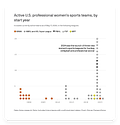





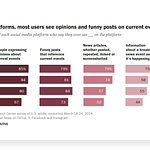


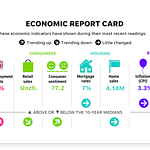

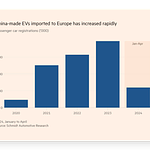
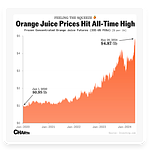
One Sentence News / May 30, 2024